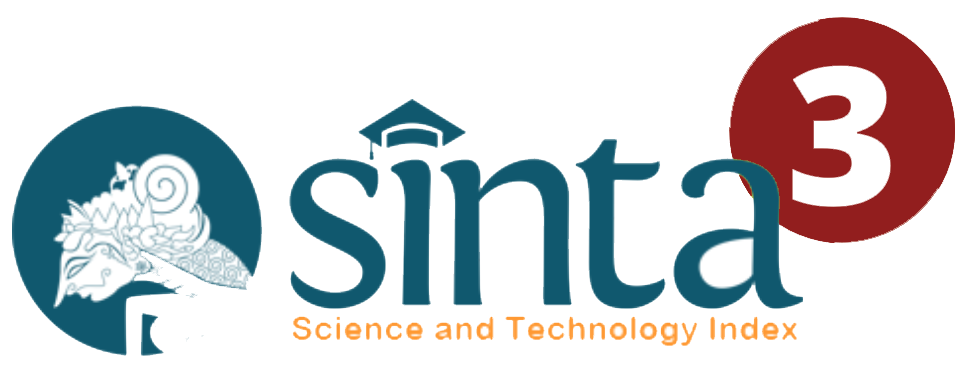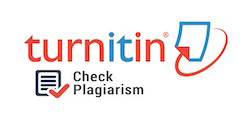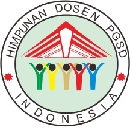The Impact of Hybrid Learning Assisted Google Site and QR-Code Model on Understanding Concept Ability of Multiplication in Elementary School Students
DOI:
https://doi.org/10.22460/pej.v7i1.3431Abstract
Understanding mathematical concepts in multiplication material are indispensable for solving mathematical problems as well as a prerequisite for the next higher material. Based on several studies the lack of students understanding the multiplication concepts is due to internal factors such as the lack of student motivation and external factors such as the lack of innovative learning media used by teachers. Therefore, the approach using ICT (Information and Collaboration Technologies) is expected to be impactful and the development of today's education. This study aims to see the impact of hybrid learning assisted by Google Site and QR Code model on understanding the concept ability of multiplication. This study used quantitative methods with one group pretest-posttest design. The population in this study were 3rd-grade elementary school students with a sampling technique using purposive sampling of as many as 34 students. From this research, it is known that the use of hybrid learning assisted by Google Site and QR Code model impacts understanding concept ability of multiplication which is characterized by an increase in the achievement of results by 0.5 or with moderate interpretation, as well as students' understanding of the multiplication concept and the causes of students' difficulties in understanding the multiplication concept. Based on the results of the study, it can be concluded that the impact of using a hybrid learning assisted by Google Site and QR Code model is an increasing understanding concept ability of multiplication. In the use of hybrid learning assisted by Google Sites and QR Code model, students found difficulties in understanding the concept ability of multiplication. This is shown by students not being able to distinguish multiplier numbers and multiplied numbers, difficulty in interpreting the language of the problem, and still lacking numeracy literacy.References
Adipat, S., Laksana, K., Busayanon, K., Asawasowan, A., & Adipat, B. (2021). “Engaging students in the learning process with game-based learning: The fundamental conceptsâ€. International Journal of Technology in Education (IJTE), 4(3), 542-552
Amalia, D.R. & Chan, F. (2022). Analisis Kesulitan Siswa Belajar Operaso Hitung Perkalian pada Pembelajaran Matematika di Kelas IV. Jurnal Pendidikan dan Konseling (JPDK), 4(3), https://doi.org/10.31004/jpdk.v4i3.4549
Atsani. (2020). Transformasi Media Pembelajaran pada Masa Pandemi Covid-19. Jurnal Studi Islam Al Hikmah, 1 (1)
Creswell, J.W & Clark, V.L (2015). “Understanding Research: A Consumer’s Guide. Second Opinionâ€, USA: Pearson Educationion, Inc
Bali, M. M. E. I., Aliyah, Z., & Humaidi, D. (2022). “Impactiveness of Hybrid Learning Assisted in e-Learning Media in Mathematics Learning at Elementary Schoolâ€. Journal of Innovation in Educational and Cultural Research, 3(4), 683-690. https://doi.org/10.46843/jiecr.v3i4.340
Broto, A. H., Miarsyah, M., & Ristanto, R. H. (2021). “G-Site Development as Teaching Materials and Science Learning Media to Improve Junior High School Student Learning Outcomes on Plant Structure Materialsâ€. International Journal of Education, Abjadia, Vol.6, No. 1, pp 20-29
Dewi, N. P. W. P., & Agustika, G. N. S. (2020). Efektivitas Pembelajaran Matematika Melalui Pendekatan PMRI Terhadap Kompetensi Pengetahuan Matematika. Jurnal Penelitian Dan Pengembangan Pendidikan, 4(2), 204–214. https://doi.org/10.23887/jppp.v4i2.26781
Hediansah, D., & Surjono, H. D. (2020). “Hybrid Learning Development to Improve Teacher Learning Managementâ€. JKTP: Jurnal Kajian Teknologi Pendidikan, 3(1), 1–9. https://doi.org/10.17977/um038v3i12019p001
Hendriana, H., Rohaeti, E.E., & Sumarmo, U., (2021). Hard Skills dan Soft Skills Matematik Siswa. Bandung: PT.Refika Aditama, ISBN 978-602-6322-45-6
Hidayatullah, F., & Anwar, K. (2020). Hybrid Learning dalam Pembelajaran Pendidikan Jasmani Sekolah Dasar dan Menengah maupun Pendidikan Olahraga Perguruan Tinggi. Prosiding SENOPATI (Seminar Olahraga Pendidikan Dalam Teknologi Dan Inovasi), Seri Webinar Olahraga (Training From Home), Imunitas Tubuh, Dan Pandemik Covid-19, 1(1), 1–7.
Juliani, A., Mustadi, A., & Lisnawati, I. (2021). “Make A Match Model†for Improving the Understanding of Concepts and Student Learning Results. Indonesian Journal on Learning and Advanced Education (IJOLAE), 3(1), 48-56, https://doi.org/10.23917/ijolae.v3i1.10269
Mufarizuddin. (2018). Analisis Kesulitan Belajar Matematika Kelas V Sd Negeri 25 Rajang Begantung Ii. Journal On Education, 1(1), 40–47. https://doi.org/10.31932/j-pimat.v2i2.869
Mustakim. M (2020). Efektivitas Pembelajaran Daring menggunakan Media Online selama Pandemi Covid 19 pada Mata Pelajaran Matematika, Al Asma: Journal of Islamic Education, 2(1), 1-12. https://doi.org/10.24252/asma.v2i1.13646
Nanga, M.Y (2020). Analisis Lintas Belajar dan Pemahaman Konsep Perkalian dan Pembagian untuk Siswa Kelas II SDK Regina Pacis Bagawa setelah Mengikuti Pembelajaran dengan Pendekatan Pendidikan Matematika Realistik, Tesis, Yogyakarta: Univeritas Sanata Dharma
Netson, B. P. H., & Ain, S. Q. (2022). “Factors Causing Difficulty in Learning Mathematics for Elementary School Students.†International Journal of Elementary Education, 6(1), 134–141. https://doi.org/10.23887/ijee.v6i1.44714
Nunes, T. & Bryant, P. (2020). “Learning and Teaching Mathematics, An International Perspectiveâ€, UK: Psychology Press
Nuraini, N. L. S., & Isbadria, N. (2018, December). “Implementation of Game-Based Learning in Elementary School: A Content-Analysis Studyâ€. In International Conference on Education and Technology (ICET 2018). Atlantis Press.
Praditama, A.G., Suhardi, Hartono (2022). Kelebihan dan Hambatan Pembelajaran Daring di Sekolah Menengah Pertama pada Masa Pandemi Covid-19, Jurnal Pendidikan, 20 (1), https://doi.org/10.31571/edukasi.v20i1.3923
Rahman, K., Wahid, A. H., Afandi, I., Bali, M. M. E. I., & Hakim, L. (2019). “Impactiveness of Teams Teaching Hybrid Learning (TTHL) in Higher Educationâ€. WESTECH, 1–6. https://doi.org/10.4108/eai.8-12- 2018.2284036
Rahmawati, I, Leksono, I.P, & Harwanto (2020), Pengembangan Game Petualang untuk Pembelajaran Berhitung, Jurnal Kajian Teknologi Pendidikan, 5(1), 11-23. https://dx.doi.org/10.17977/um039v5i12020p011
Rorimpandey, W.H.F., & Midun, H. (2021). “Impact of Hybrid Learning Strategy and Self Efficacy on Learning Outcomesâ€, Journal of Hunan University Natural Sciences, 48 (8)
Siregar, N. (2021). Pemahaman Konsep Matematika Siswa SMP Melalui Pendekatan Realistic Mathematics Education. Jurnal Cendekia: Jurnal Pendidikan Matematika, 5(2), 1919-1927. https://doi.org/10.31004/cendekia.v5i2.635
Vusic. Bernic. Gecek. (2018). “Instructional Design in Game-Based Learning and Applications Used in Educational Systemsâ€, Technical Journal, 12(1):11-17 https://doi.org/10.31803/tg-20180312141348
Tiyas, Y.F.F. (2017). Analisis dalam Menyelesaikan Soal Cerita Matematika berdasarkan Tahapan Newman beserta Bentuk Scaffolding yang Diberikan, Kadikma, 8 (1), Universitas Jember
Tohet, M., et al (2021). “Characters Education Based Audiovisual for Children in the Coastal Areaâ€, Turkish Online Journal of Qualitative Inquiry (TOJQI), 12(4), 1639–1644.
Yunitasari, R & Hanifah, U (2020). Pengaruh Pembelajaran Daring terhadap Minat Belajar Siswa pada Masa Covid 19. Edukatif: Jurnal Ilmiah Pendidikan, 2 (3), 2232-243, https://doi.org/10.31004/edukatif.v2i3.142










